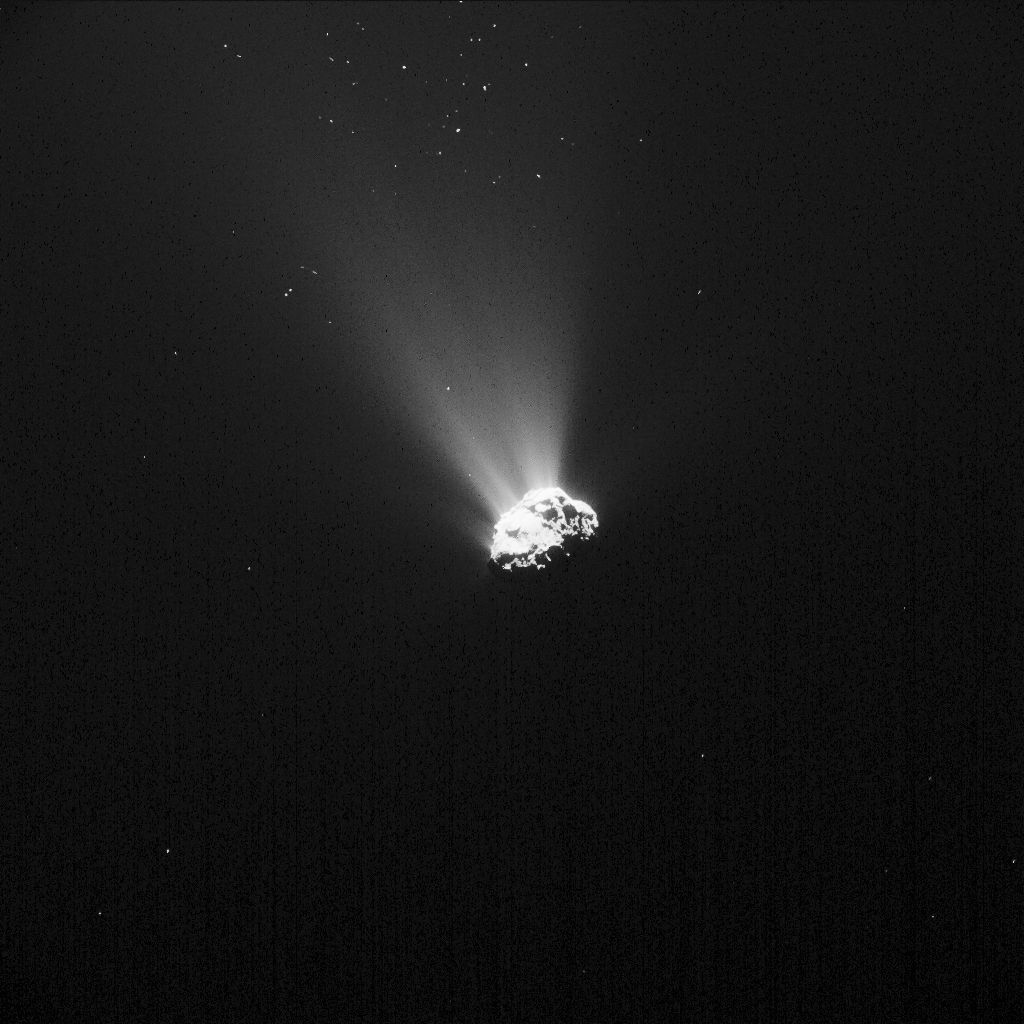Philae and Rosetta have already been spectacular successes, but ESA wants to tease some last minute new data from the comet lander on 67P/C-G if it can re-establish contact.
More than a year after the European Space Agency’s (ESA) Philae spacecraft made history with the first-ever successful touchdown on the surface of a comet — 67P/Churyumov-Gerasimenko, its Rosetta spacecraft is still trying to re-establish contact with its now-silent lander.
“We’re trying to contact the lander once more before that area goes back into shadow,” Joel Parker, Deputy Principle Investigator on Rosetta’s ALICE ultraviolet spectrograph and a planetary scientist at the Southwest Research Institute (SWRI) in Boulder, told me. “We’re really trying to coordinate the spacecraft distance- and location-wise to optimize communication.”
ESA says Philae’s communications issues are probably the result of very low temperatures experienced by the lander in the months immediately following its landing at the dark Abydos location. Although the space agency says that communications were re-established on June 13th, and then intermittently on several occasions since, they still maintain hope that the constantly changing thermal conditions on Comet 67P will enable one last stable contact with Philae. That is, one that would allow the lander to continue taking surface data from the 4 km-diameter comet.
